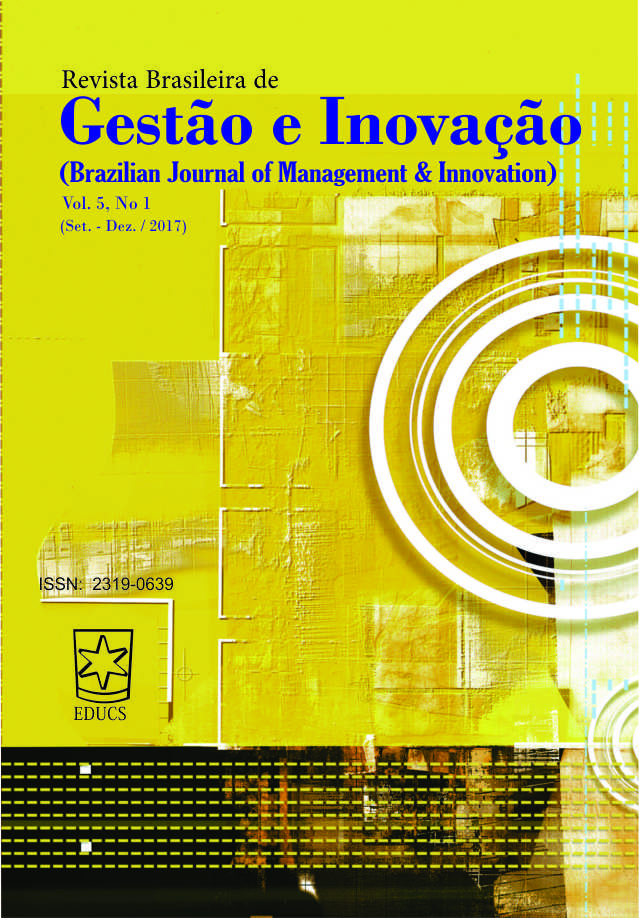POSICIONAMENTO DE MARCA: ESTUDO DE CASOS EM INSTITUIÇÕES COMUNITÁRIAS DE ENSINO SUPERIOR | BRAND POSITIONING: CASE STUDIES IN COMMUNITY INSTITUTIONS OF HIGHER EDUCATION
Keywords:
Marketing de serviços, Posicionamento de marca, Imagem de marca, Instituição de Ensino Superior,Abstract
Posicionamento de marca é projetar determinada marca na mente do público-alvo, buscando obter posição distintiva em relação aos seus concorrentes. O estudo buscou examinar como marcas de duas instituições comunitárias de ensino superior estão posicionadas no mercado, segundo a ótica de estudantes e seus gestores de marketing. Trata-se de estudo de abordagem qualitativa, com enfoque exploratório e na forma de estudo de casos múltiplos, com dados coletados via focus group e entrevista semi-estruturada em profundidade realizada no ambiente de trabalho dos gestores. O processo de análise dos dados envolveu a análise de conteúdo, com categorização temática. Os resultados revelaram os critérios de decisão utilizados por estudantes de graduação na seleção da instituição comunitária de ensino superior, o posicionamento das marcas/instituições percebido pelos estudantes e o posicionamento das marcas desejado pelas instituições, nos atributos qualidade de ensino versus preço e localização versus reconhecimento de mercado. Os resultados apontam, também, que há diferenças entre o posicionamento desejado pelas instituições e o posicionamento percebido pelos estudantes. O estudo possibilitou ampliar o conhecimento sobre posicionamento de marcas de serviços, coletar evidências empíricas sobre critérios de decisão dos estudantes na seleção da instituição comunitária de ensino superior e confirmar algumas proposições teóricas sobre o tema.
DOI: 10.18226/23190639.v5n1.06a
Downloads
Published
How to Cite
Issue
Section
License
The author must guarantee that:
- there is full consensus among all the coauthors in approving the final version of the document and its submission for publication.
- the work is original, and when the work and/or words from other people were used, they were properly acknowledged.
Plagiarism in all of its forms constitutes an unethical publication behavior and is unacceptable. Revista Brasileira de Gestão e Inovação has the right to use software or any other method of plagiarism detection.
All manuscripts submitted to RBGI - Revista Brasileira de Gestão e Inovação go through plagiarism and self-plagiarism identification. Plagiarism identified during the evaluation process will result in the filing of the submission. In case plagiarism is identified in a manuscript published in the journal, the Editor-in-Chief will conduct a preliminary investigation and, if necessary, will make a retraction.
This journal, following the recommendations of the Open Source movement, provides full open access to its content. By doing this, the authors keep all of their rights allowing Revista Brasileira de Gestão e Inovação to publish and make its articles available to the whole community.
RBGI - Revista Brasileira de Gestão e Inovação content is licensed under a Creative Commons Attribution 4.0 International License.
Any user has the right to:
- Share - copy, download, print or redistribute the material in any medium or format, linking to RBGI site.
- Adapt - remix, transform and build upon the material for any purpose, even commercially.
According to the following terms:
- Attribution - You must give appropriate credit, provide a link to the license, and indicate if changes were made. You may do so in any reasonable manner, but not in any way that suggests the licensor endorses you or your use.
- No additional restrictions - You may not apply legal terms or technological measures that legally restrict others from doing anything that the license permits.
#RBGI







